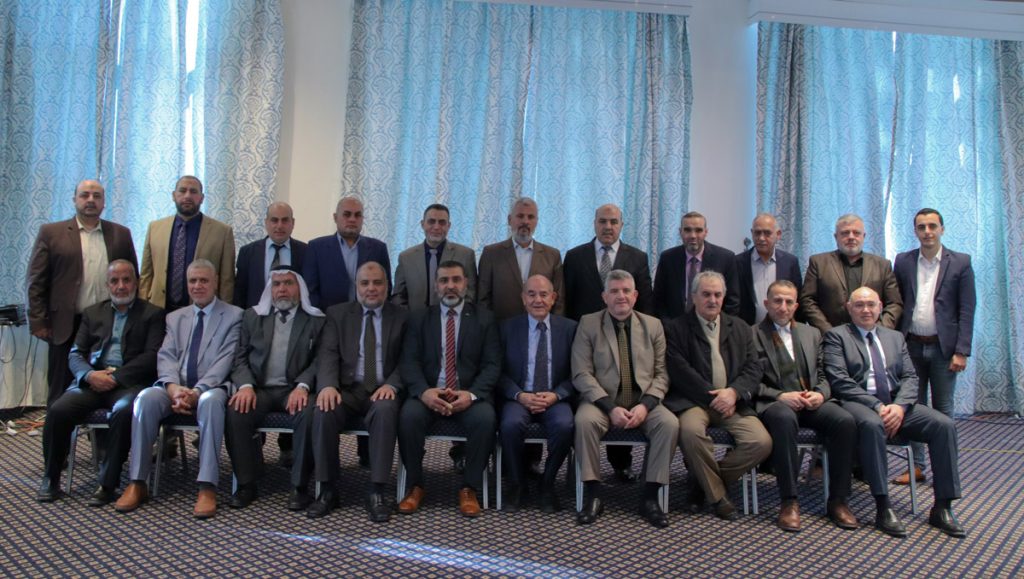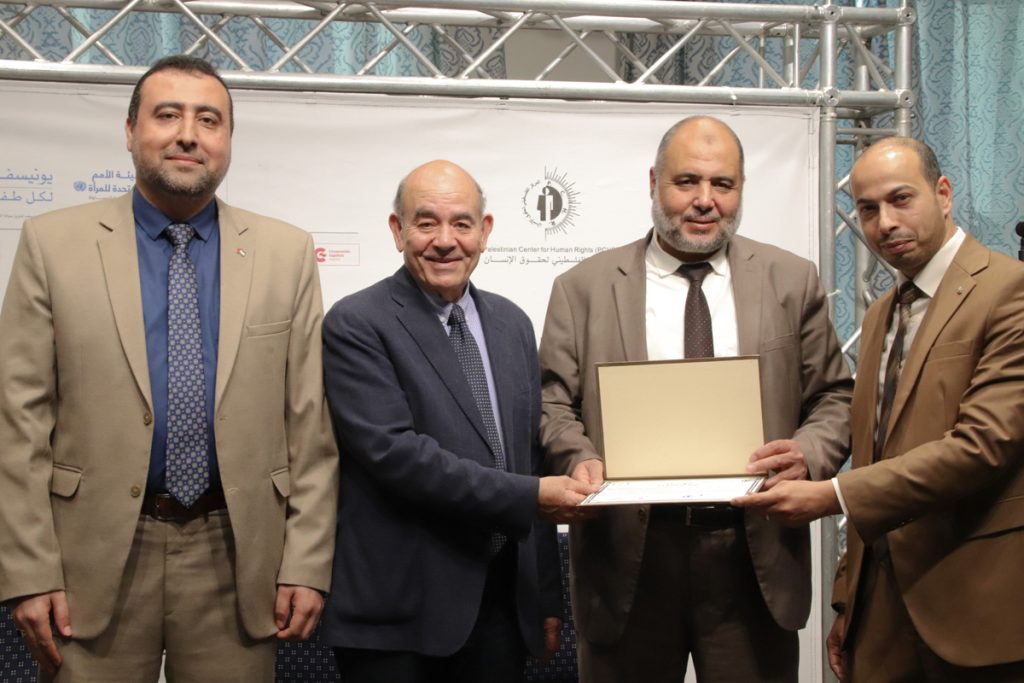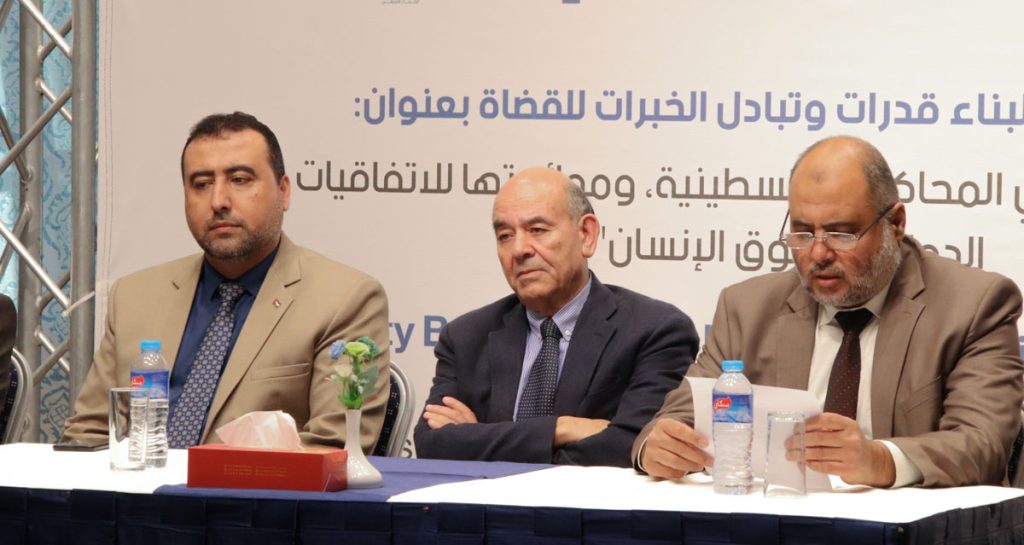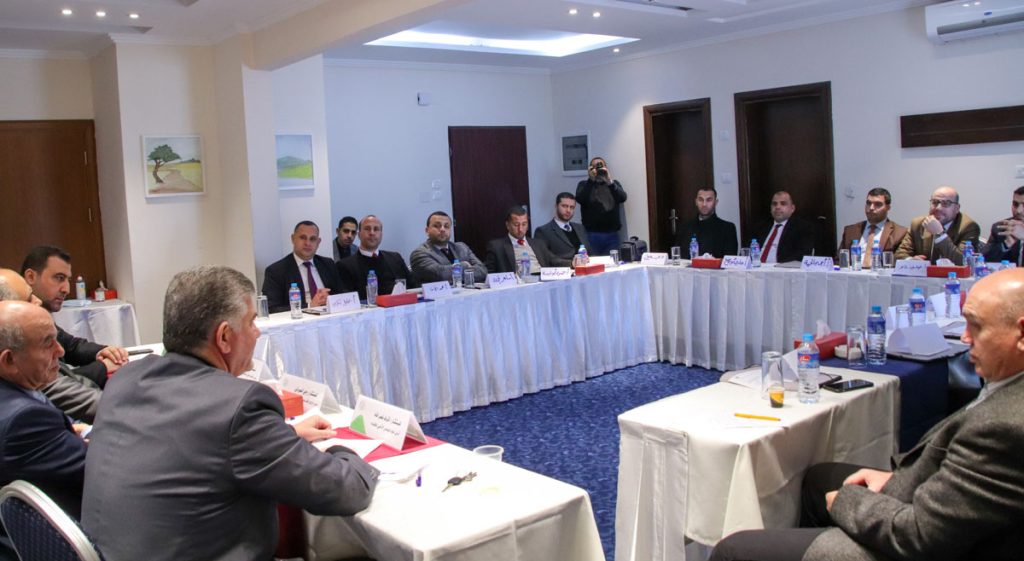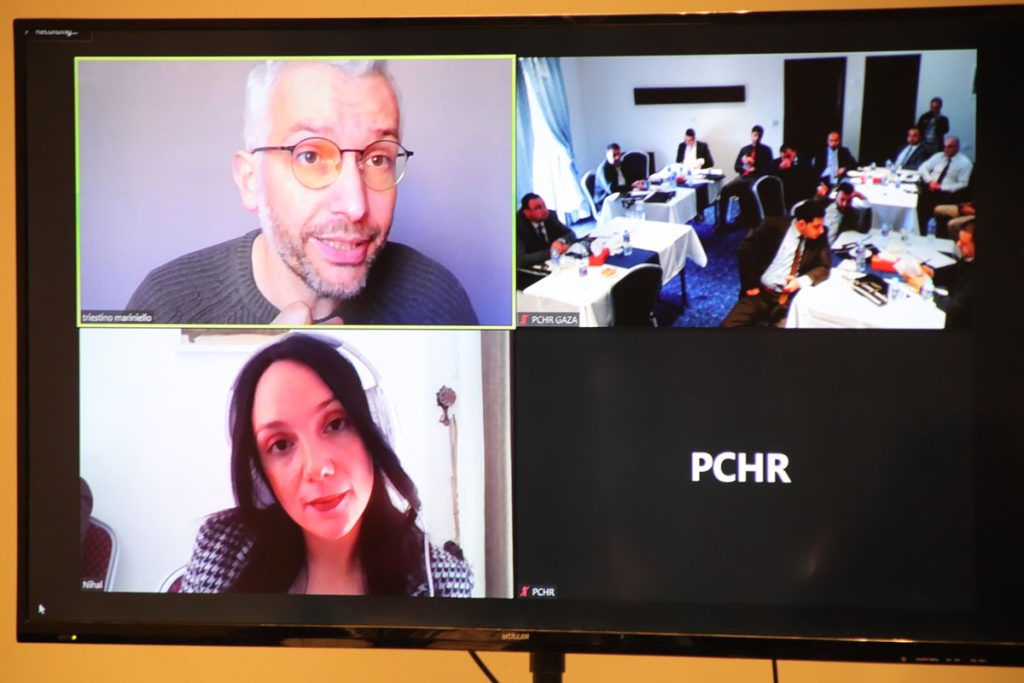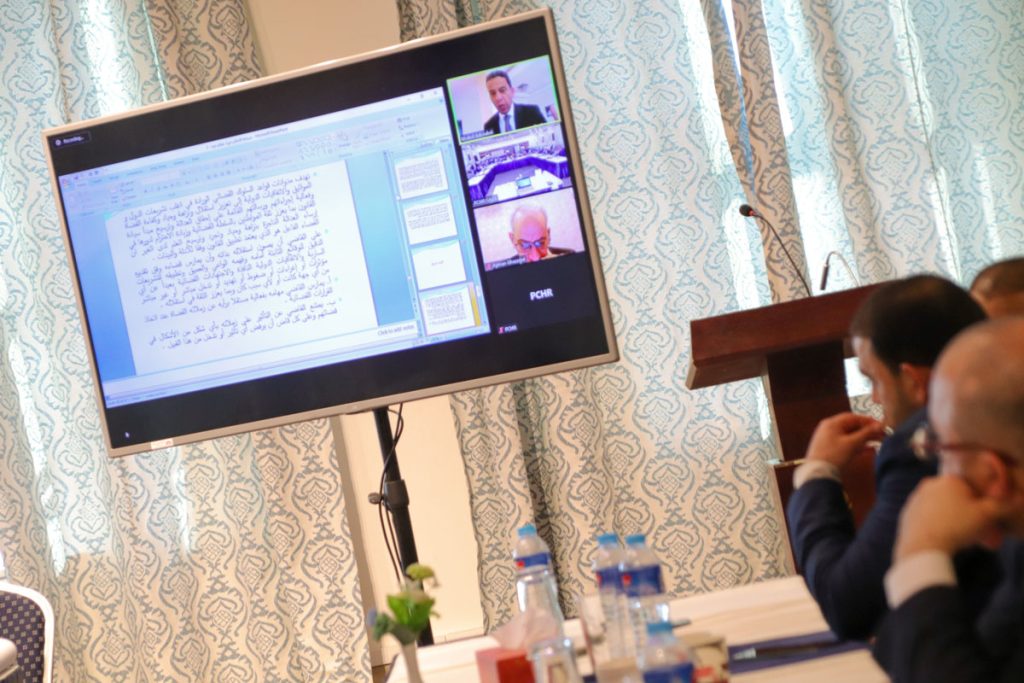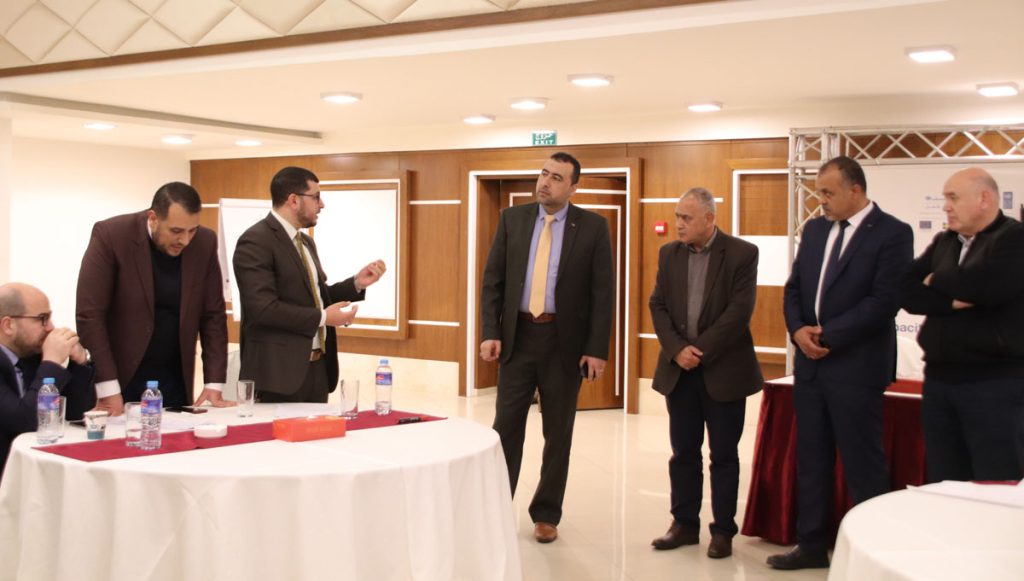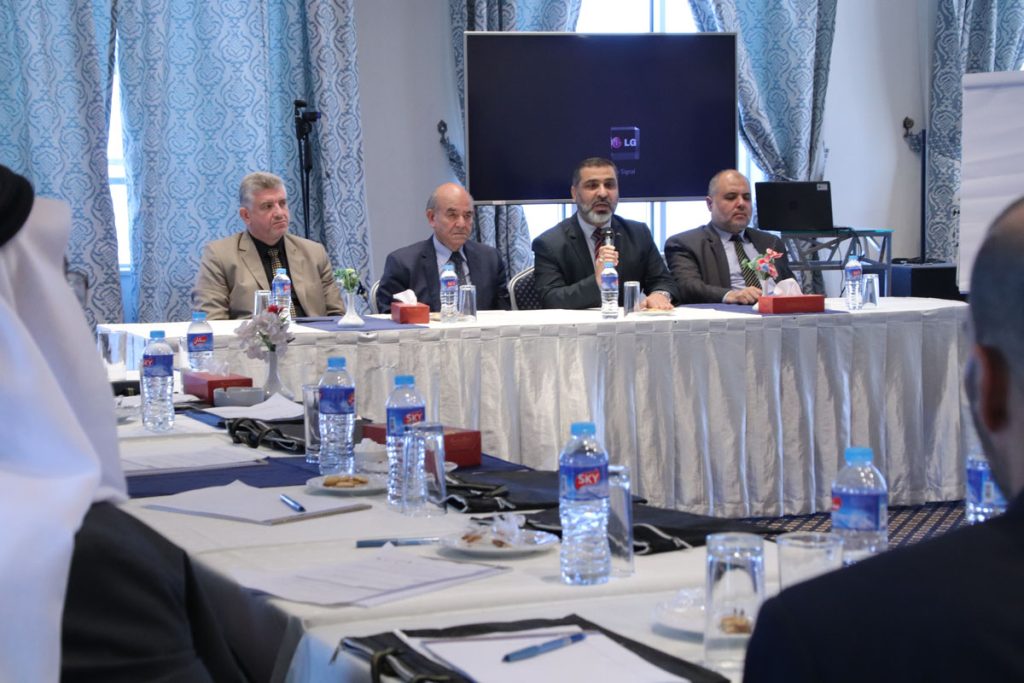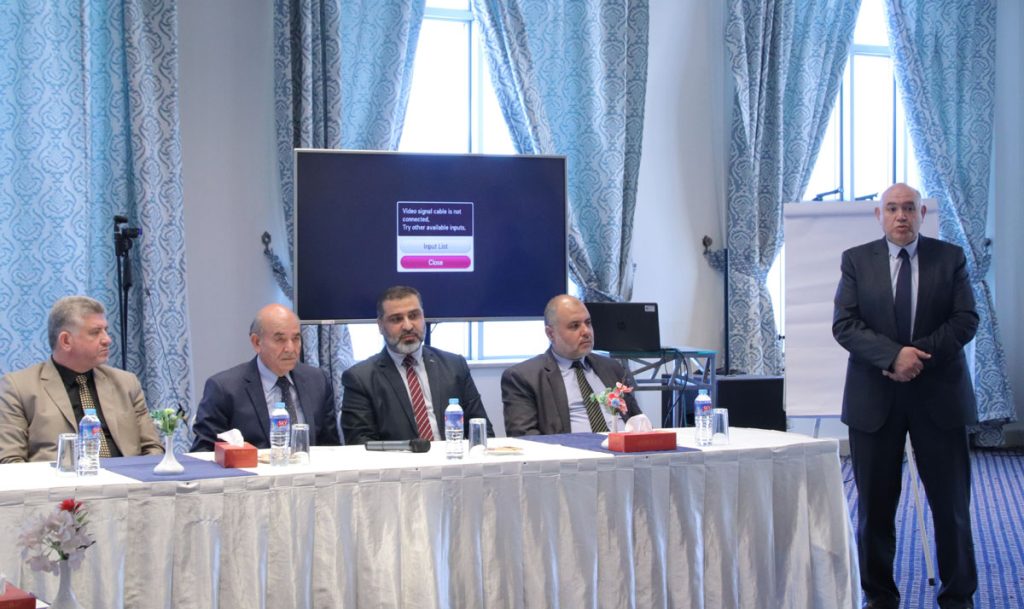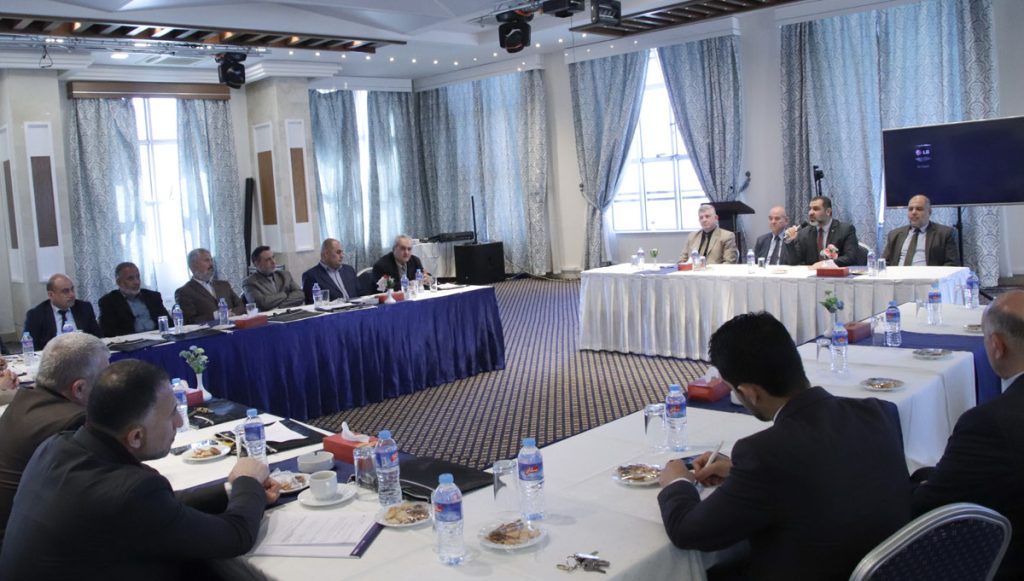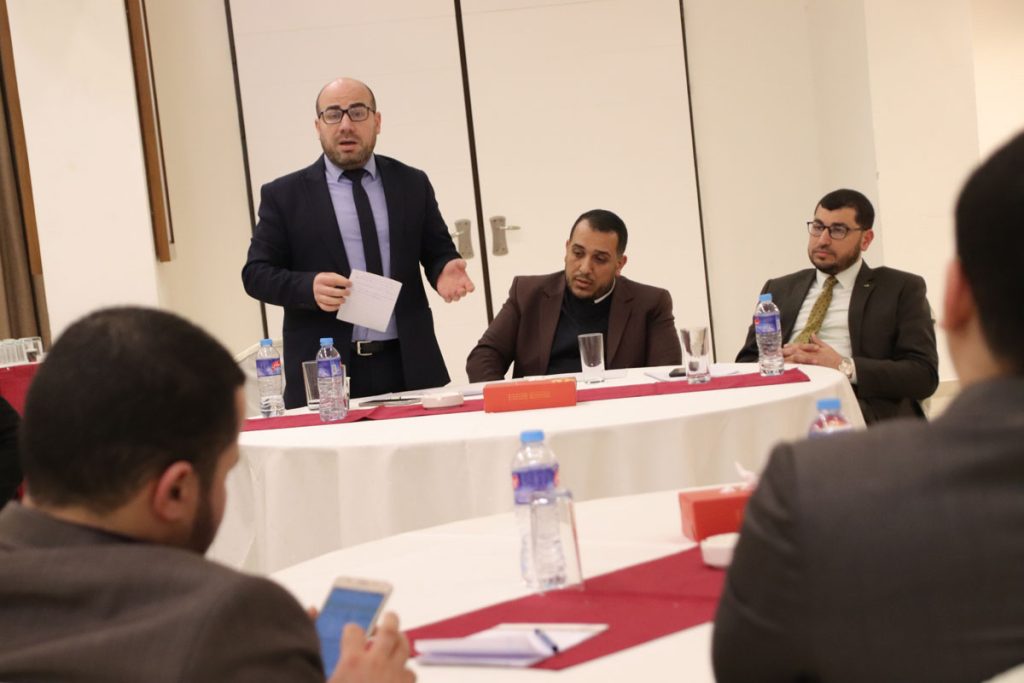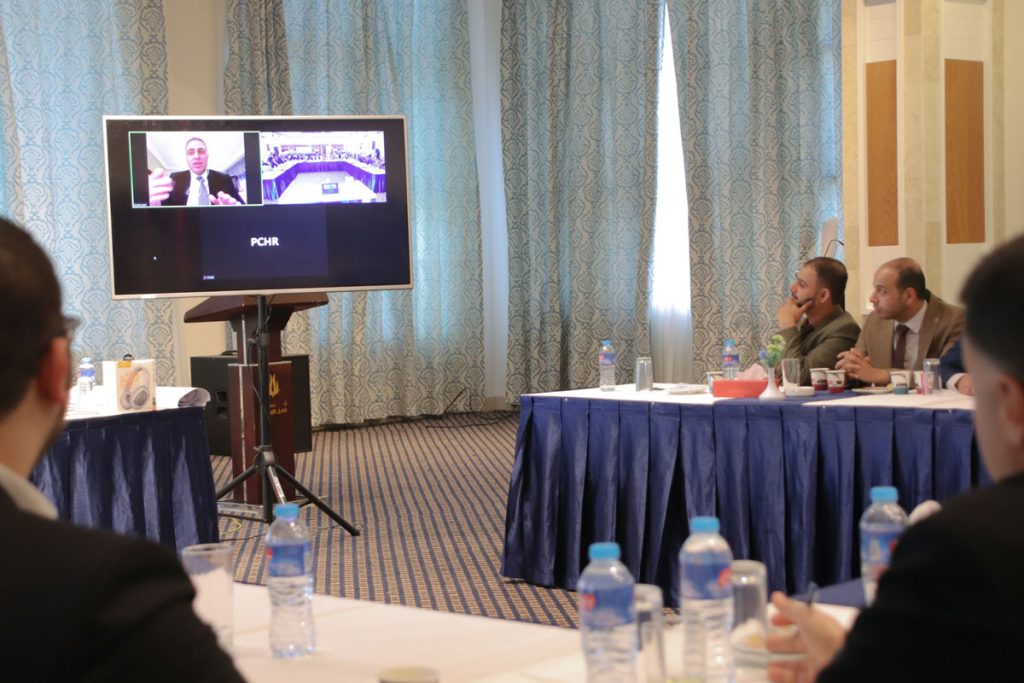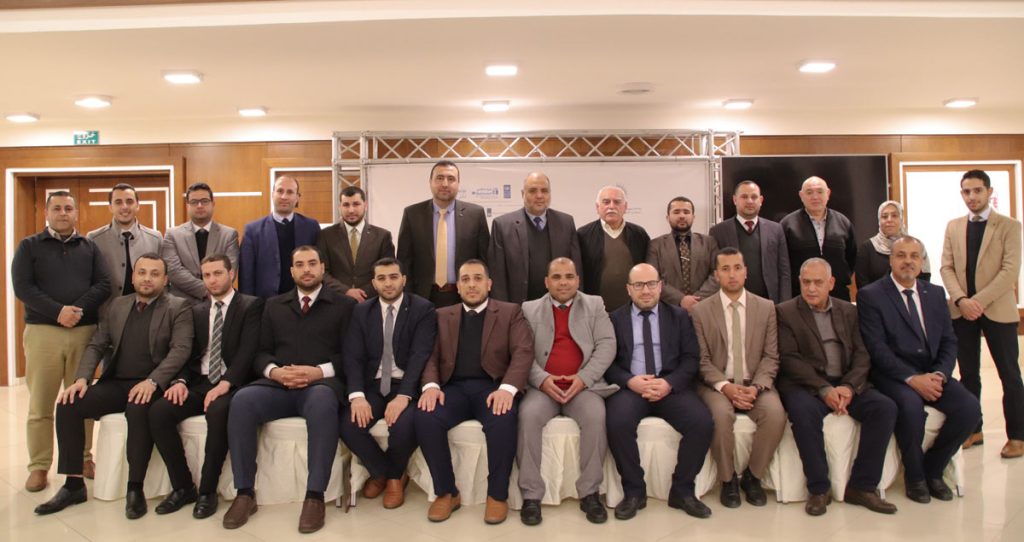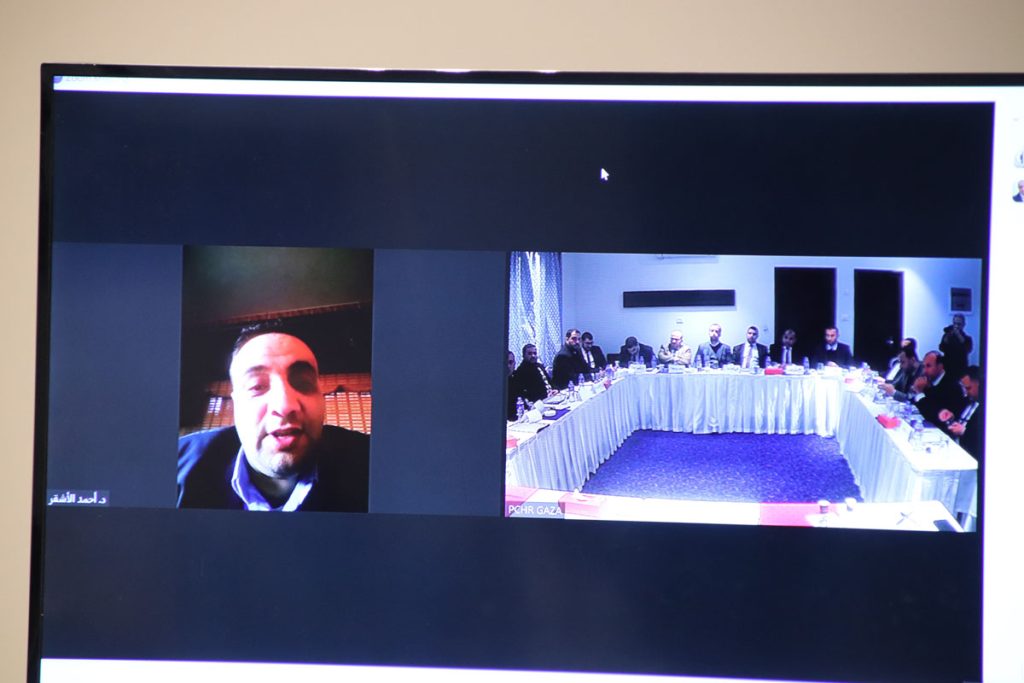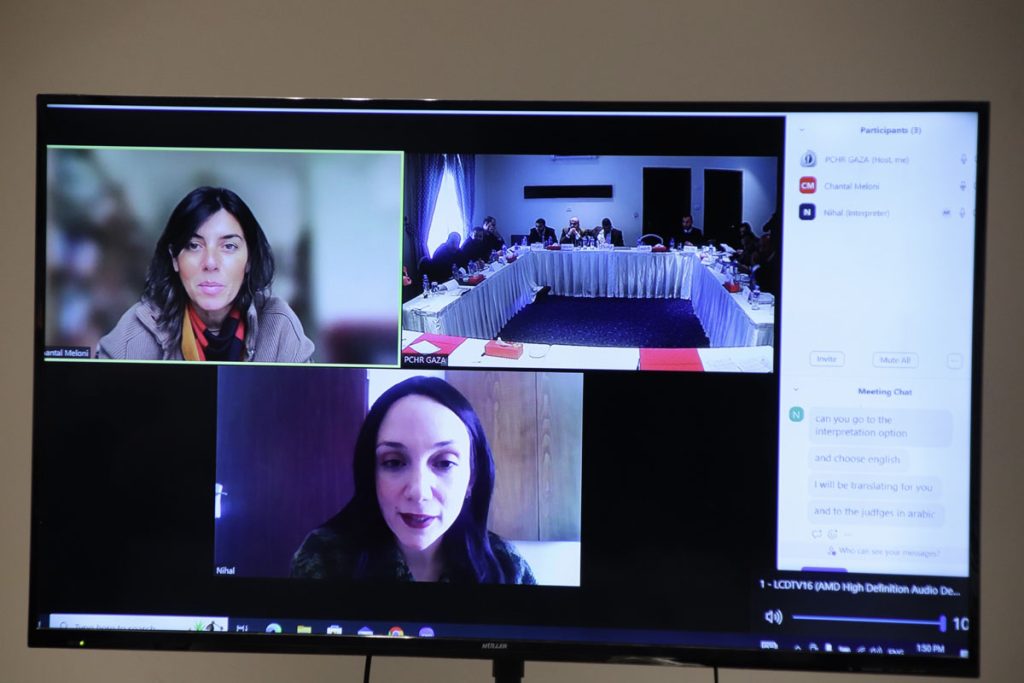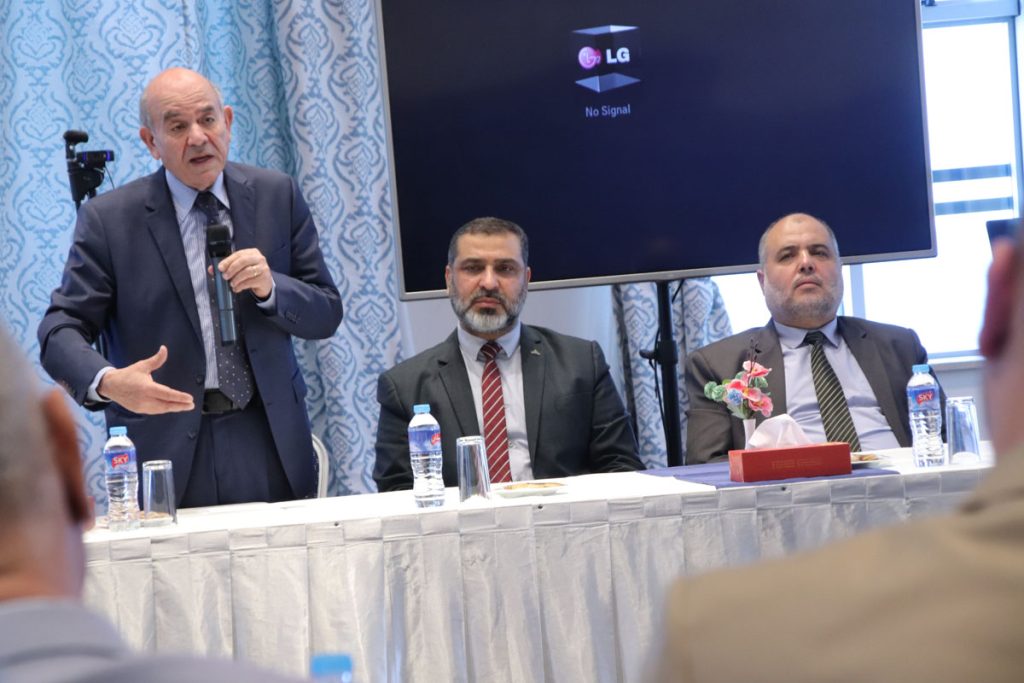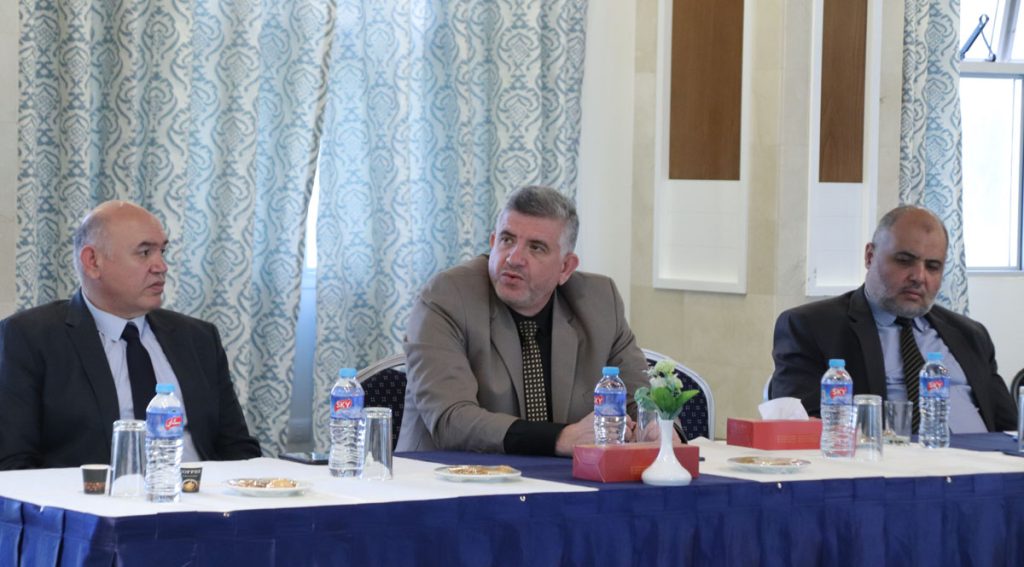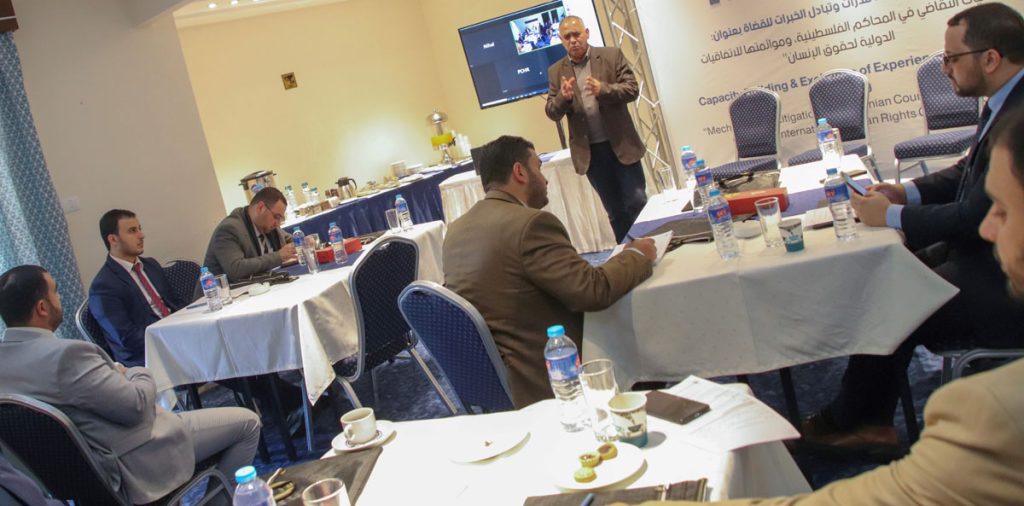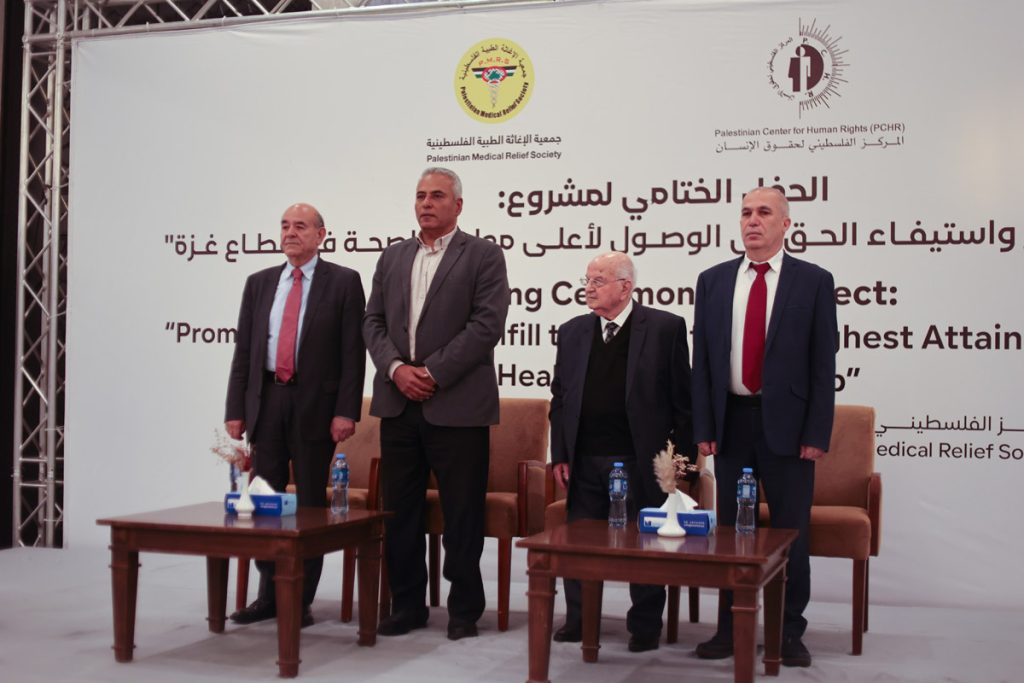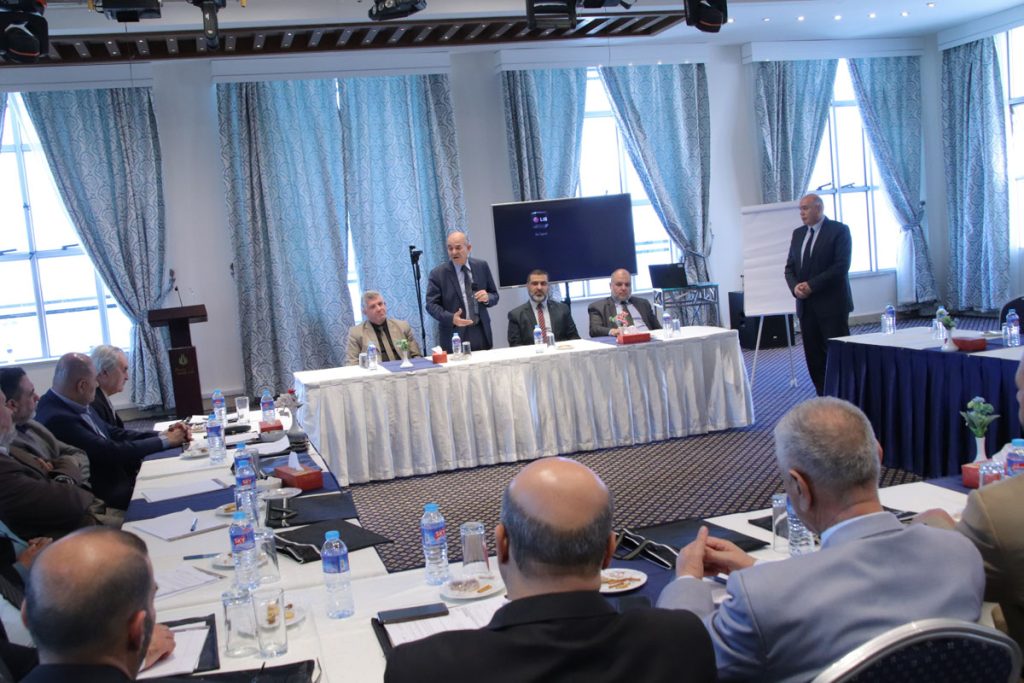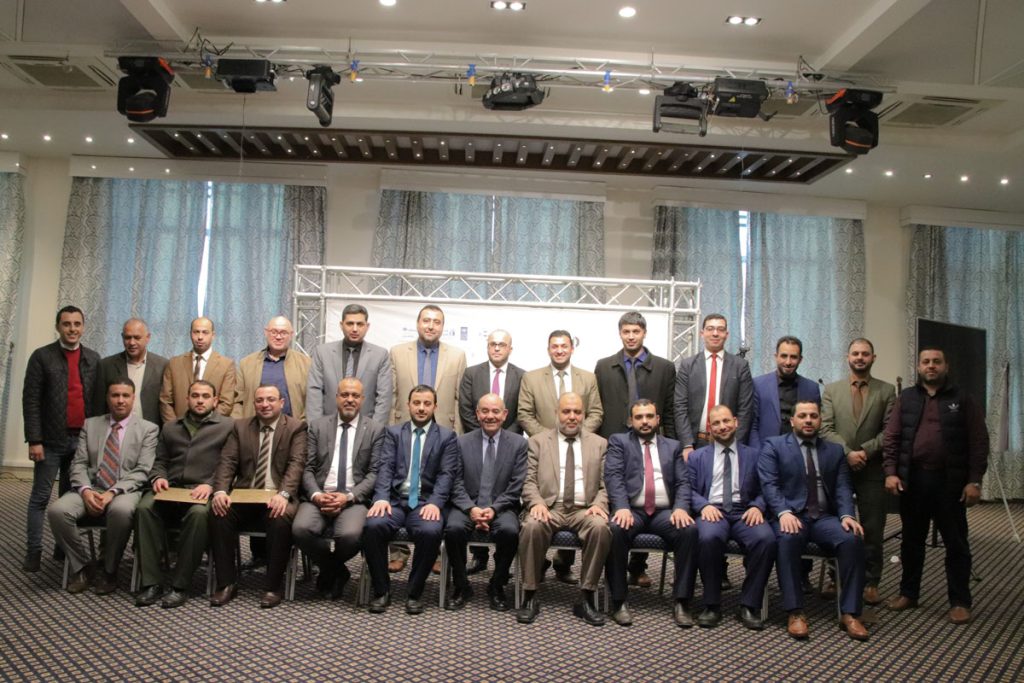
Ref: 19/2023
Date: 13 March 2023
On Monday, 13 March 2023, the Palestinian Centre for Human Rights (PCHR) concluded a series of meetings to build capacities and exchange experiences with court judges in the Gaza Strip. The closing ceremony was attended by Mr. Raji Sourani, Director of PCHR, Chancellor Diaa Al-Madhoun, President of the Higher Judicial Council, chancellor Ashraf Nasrallah, Secretary General of the Higher Judicial Council, and Chancellor Iyad ‘Ashour, Head of the Technical and Judicial Inspection Office.
Forty-eight judges representing all classes of Palestinian trial-level courts in the Gaza Strip participated in the meetings from 22 February to 13 March 2023. The training sessions were moderated by international, Arab and Palestinian experts.
The meetings aimed at developing and exchanging the knowledge and experience with the judiciary members on the general concepts of the international human rights system, the most important human rights conventions signed by the State of Palestine and their compatibility with the applicable laws and judicial provisions in accordance with international human rights standards, as well as discussing the progress made by the international law with regard to human rights issues, given its importance in enabling the judiciary to properly apply internal laws and policies, transparency and accountability.
Mr. Raji Sourani, Director of PCHR, emphasized in his closing speech on PCHR’s commitment to use all its networks, knowledge and experience to serve the development of the judicial system, stressing the importance of the constant cooperation and partnership between PCHR and the judiciary. Sourani added that the judiciary cannot be trained, but rather gain a level of expertise and new and updated knowledge, noting that local courts and judges are the cornerstone of human rights protection, and that exchanging experience and being aware of the international standards relevant to the international human rights and international humanitarian law is essential when dealing with cases of violations and protecting human rights. He concluded that It is a must to attach particular importance to the discussion on national law incorporating the international standards in a way that serves justice and the realization of human rights in the Palestinian community.
In his speech, Sourani addressed PCHR’s role in monitoring and documenting human rights violations, building legal files to prosecute perpetrators before the courts in many countries and before the International Criminal Court (ICC). He also addressed the Israeli Occupation Forces (IOF)’s systematic policy in committing crimes against the Palestinian people and the politicalized Israeli judiciary’s providing legal cover for Israeli leaders suspected of committing international crimes and offering them impunity. This included depriving Palestinian victims of their legitimate right to seek judicial redress and access to justice.
For his part, Chancellor Diyaa al-Madhoun, Head of the Higher Judicial Council-Gaza Strip, thanked PCHR, its director and everyone who contributed to preparing and implementing this program, stressing PCHR’s essential role and its contributions at the local and international levels in exposing the Israeli violations and prosecuting the perpetrators of international crimes. Al-Madhoun emphasized that the judicial system seeks to exchange experience with Civil Society Organizations (CSOs), especially human rights organizations, as well as international organizations, in order to improve the judicial system, which is considered the resort for the oppressed people and the oversight power over the authorities.
Al-Madhoun added that societies and organizations are on constant development, and anyone lagging behind this development will remain in place, so tools of progress, development and quality are the training and exchange of experiences. Therefore, these meetings came to boost knowledge and learn from others’ experiences, as the judicial system has previously prepared an integrated and constant plan for training. Al-Madhoun stressed the judiciary’s oversight role over the executive and legislative authorities through the Administrative and Supreme Courts, clarifying that the Palestinian judicial system will remain an umbrella for all the Palestinian people to fulfill their rights according to due process of law and as required by justice in a way that underpins citizens’ confidence in the Palestinian judicial system.
